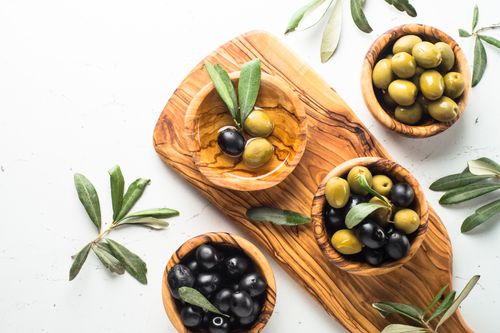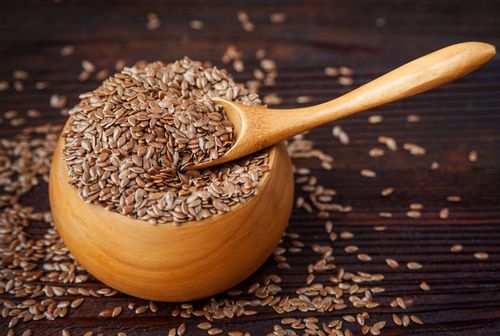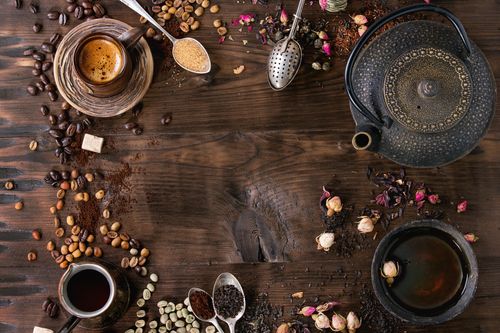Foods That may Lower the Risk of Cancer HealthifyMe Blog HealthifyMe Blog - The definitive guide to weight loss, fitness and living a healthier life.
Summary: These top 15 foods help prevent cancer due to the presence of anti-oxidative and anti-inflammatory compounds. The right amount of servings of cancer-fighting foods on a daily or weekly basis can reduce the chance of cancer by almost 70%.
In a fast-paced life, it is difficult to find the right combination of foods. With desk jobs that often exceed 9-to-5, sedentary lifestyles, and the easy availability of junk foods, the world is increasingly becoming prone to deadly diseases like cancer. According to the World Health Organization (WHO), cancer is the second leading cause of death worldwide. Although no one food can completely avert cancer by itself, several foods can greatly reduce cancer risk. In fact, your diet and nutrition influence your entire health profile. An ideal way to protect your health is to include a variety of these foods to prevent cancer.
Here are the top 15 foods that can help you keep cancer at bay
#1Tomatoes
Tomatoes contain lycopene, a powerful antioxidant. The red color of tomatoes owes to the presence of lycopene that also serves as an anti-cancer agent. While the compound is effective in both raw and cooked tomatoes, it is more easily absorbed in the latter state. Lycopene plays an important role in curbing prostate and esophageal cancer. Experts recommend a daily intake of one or two tomatoes in the form of salads, in stews or curries, etc.
#2 Citrus fruits
Citrus fruits are filled with several compounds that exhibit cancer-fighting qualities. This family of fruits includes lemons, grapefruits, oranges, limes, etc. Research suggests at least three servings of citrus fruits per week are necessary to decrease cancer risk. As citrus is beneficial for the digestive and respiratory tracts, it protects you from the cancers of the pancreas, stomach, esophagus, and related organs.
#3 Mushrooms
The bioactive compounds in mushrooms act as antitumor agents. They work on our body cells to regulate and impede the growth of tumor-related cells. Research has found that daily consumption of half to one cup of mushrooms reduces the risk of breast cancer by almost 70% or intake of fresh mushrooms (greater than or equal to 10 grams per day) and dried mushrooms (greater than or equal to 4 grams per day) decreased the risk by 64 percent and 47 percent, respectively. At high levels, estrogen and other associated hormones are known to result in breast cancer. The compounds present in mushrooms help control the secretion of these hormones, thus preventing the formation of breast cancer cells.
#4 Nuts
Nuts are among the healthiest foods to prevent cancer and other life-threatening diseases. Most nuts like walnuts, almonds, peanuts, and Brazil nuts have anti-inflammatory and anti-oxidative properties. For example, Brazil nuts are a rich source of selenium, which prevents cancers of the prostate, stomach, and bladder. Similarly, walnuts curtail the development of breast cancer cells. Regularly eating nuts reduces cancer mortality by 60%, according to recent studies on the subject.
#5 Olives
Olives are loaded with many cancer-fighting compounds. Olives form an essential part of the Mediterranean diet and is popular for its health benefits. Studies have shown that dietary use of olive oil limits the risk of colorectal and breast cancer. Olives and olive oils carry compounds that kill cancerous cells in the human body. It’s important to choose the least processed olive oil to get the health benefits. Similarly, olive oil should not be overheated or reheated, as it can degrade and produce harmful compounds.
#6 Cruciferous vegetables
Common cruciferous vegetables like cabbage, broccoli, and cauliflower are rich in anticarcinogens. The compounds present in these vegetables effectively eliminate cancerous tumors and inhibit associated genes. They also stimulate the body’s enzymes that work against cancer. For instance, studies have shown that broccoli contains compounds that eradicate prostate cancer cells and deplete tumor volume by over 50%. Adults are advised to take 2-3 cups per week of cooked or raw broccoli or cauliflower to get maximum benefits.
#7 Whole grains
Apart from being fibre-rich, whole grains like quinoa, oats, and brown rice function as strong anti-cancer agents. These foods contain chemicals that stop the growth of cells linked to colorectal, pancreatic, breast, and prostate cancers.
A group of studies indicate that daily consumption of whole grains reduces breast cancer risk by 47%. The American Institute of Cancer Research (AICR) recommends that a minimum of 3 ounces, or 90 grams, of whole grains should be taken daily to decrease cancer risk.
#8 Allium vegetables
Allium vegetables include garlic, onion, leeks, etc. These foods have been used in traditional medicine since ancient times. Laboratory studies reveal that allium products contain compounds with tumor-inhibitory qualities. Garlic, in particular, diminishes the likelihood of gastric cancer, and a daily intake of 2-5 grams of garlic is recommended.
#9 Berries
The plant pigments of berries have potent antioxidant properties. Several research findings demonstrate that berry extracts mitigate the development of cancer and tumour cells. Experiments conducted with black raspberries show that they decrease the percentage of tumorous cells by more than 60%. Similar results have been found with blueberries and bilberries. One to two daily servings of berries can maximize these benefits.
#10 Cinnamon
Cinnamon is a common spice used for its aromatic and flavoring purposes. Its constituent compounds are known for multiple health benefits, including the tumor-killing function. Cinnamon not only reduces cancer-causing cells but also induces their death. Test-tube studies have shown that cinnamon extract or oil suppresses the spread of cancer cells and decreases tumor size. Adding 2-4 grams of cinnamon daily to your diet provides optimum nutrition.
#11 Flax seeds
Another high-fiber food, flax seeds provide heart-healthy fats that are also useful for cancer prevention. These seeds predominantly alter and regulate the metabolism of estrogen, thus preventing the risk of breast cancer, particularly in younger women. Flax seeds also prevent the growth of prostate cancer cells in men. Nutritionists advise a daily intake of 10 grams of raw flax seeds. One can just chew them or sprinkle them over yogurt, smoothies, salads, or soups.
#12 Carrots
A great source of antioxidants, carrots substantially lower the odds of developing lung, stomach, and prostate cancers. Carrot intake has a relatively less intense yet similar impact on other types of cancer. Carrots contain pigments called carotenoids, which are excellent antioxidants and are responsible for the reddish color of carrots. Carotenoids promote the self-destruction of abnormal cells and enhance enzymes that monitor cell growth. The right path to good health is eating a serving or two of carrots in your daily diet.
#13 Apples
It would be wise to say that an apple a day keeps cancer and other diseases away. Research studies reveal that the consumption of apples reduces the probability of cancers of the respiratory and digestive tracts. Further, it also lessens the likelihood of breast cancer. Like other cancer-fighting agents, apples are full of compounds with antioxidant properties.
#14 Legumes
Legumes are the seeds of plants belonging to the family of lentils, peas, beans, etc. These come in several varieties and guard against many types of cancers such as stomach, breast, kidney, and prostate cancer. Legumes are replete with dietary fiber, vitamins, and other minerals that thwart the development of cancerous cells. For instance, research has found that beans block the growth of up to 75% of cancerous cells. A few servings of legumes per week is an ideal way to fend off cancer.
#15 Tea and Coffee
Beverages like tea and coffee are extremely rich in antioxidants. In fact, tea varieties, because of their anticarcinogenic nature, are even used in cancer therapies. Research studies point out that regular consumption of green tea protects against skin cancer. Likewise, daily intake of tea tremendously lowers the odds of gastric cancer, specifically in women. But the consumption of these drinks should be moderate and without sugars/sweeteners and milk, for benefits.
Apart from the foods mentioned above, there are many other foods to prevent cancer-like diseases. The commonality among these foods is their anti-oxidative and anti-inflammatory characteristics. Both features regulate cell growth and boost immunity.
In a nutshell, a balanced diet and healthy lifestyle can go a long way to prevent the formation of cancer cells.
Frequently Asked Questions (FAQs)
A. There is no definitive research linking organic produce to cancer prevention. The nutrient value remains the same, whether or not a food was organically grown. But yes, foods free from chemical based fertilizers, insecticides, etc. do help to reduce risk of health issues.
A. Yes, studies show that vegetarians are at a slightly lesser risk of cancer than non-vegetarians. This is usually because an excess of non-vegetarian food, especially processed red meats, can prompt the growth of cancerous cells.
A. Gluten is a protein that has no ill effects except for people with gluten-intolerance or similar health issues. It is present in whole grains, which count among the cancer-fighting foods. So, a gluten-free diet has no role in reducing cancer.
A. Yes, water reduces the odds of cancer as it eliminates toxic elements from the body and helps maintain a healthy temperature. Besides, it assists with efficient assimilation of nutrients.
A. No, microwaves and similar methods do not result in cancer, as the radiation emitted is not carcinogenic. However, cooking or heating any food at very high temperatures can lead to chemical formations that may cause cancer.
The post Foods That may Lower the Risk of Cancer appeared first on HealthifyMe Blog.
from HealthifyMe Blog https://ift.tt/3v8YyhX








Post a Comment
Post a Comment